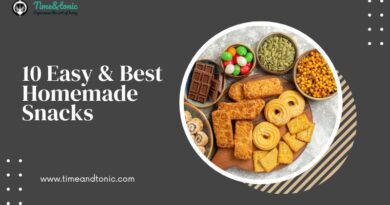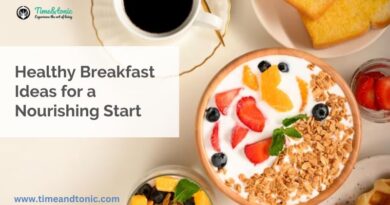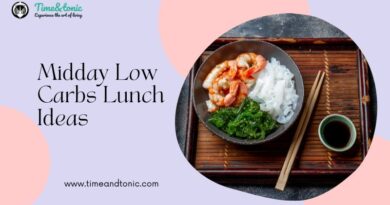10 Fiber-Rich Foods for a Healthy Diet: Boosting Your Wellness and Vitality
Fiber-Rich Foods for a Healthy Diet – Maintaining a healthy diet is key to nurturing your body and ensuring overall wellness. Among the many essential components of a balanced diet, dietary fiber stands out for its remarkable benefits. Fiber plays a crucial role in digestive health, weight management, and even disease prevention. In this comprehensive guide, we’ll delve into 10 fiber-rich foods that can transform your diet and contribute to a healthier, more vibrant you.
Fiber-Rich Foods for a Healthy Diet
1. Black Beans: Nutrient-Packed Powerhouses
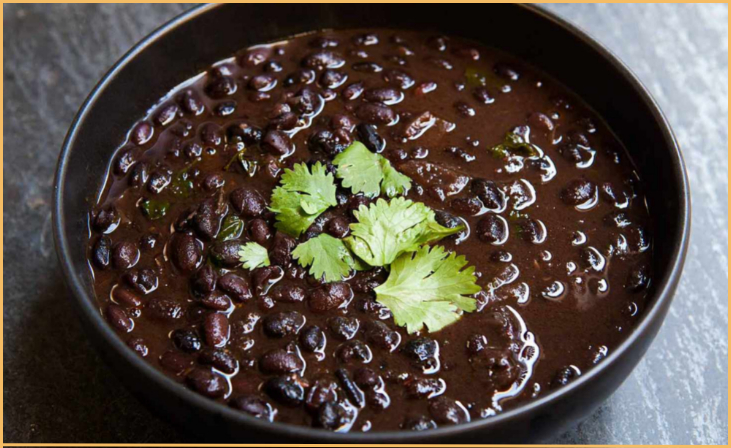
Black beans are a versatile and nutrient-packed addition to your diet. With 7.5 grams of fiber per 1/2 cup serving, they deliver a substantial portion of your daily fiber needs (25%–30%). Whether enjoyed in soups, salads, or as a side dish, black beans provide the fuel your body needs to thrive.
But what makes black beans so special? Apart from their fiber content, they are also rich in essential nutrients like protein, iron, and folate. This makes them an excellent choice for vegetarians and vegans looking to meet their nutritional needs.
Also Read: 10 Healthiest Fast-Food Meals for Weight Loss
2. Beans in the Navy: A Fiber-Rich Alternative
If black beans aren’t your preference, navy beans offer a delightful alternative. Surprisingly, navy beans outshine black beans in the fiber department. They’re perfect for dishes like seared scallops with spinach, turkey-white bean chili, or a hearty kale and white bean salad.
Navy beans are a treasure trove of fiber, and they also provide a significant amount of plant-based protein. Incorporating them into your diet not only boosts your fiber intake but also supports muscle growth and repair.
3. Raspberries & Blackberries: Berry Blast of Fiber
Berries are nature’s fiber-packed gems, and raspberries and blackberries reign supreme. Whether blended into a peanut butter overnight oats concoction, swirled into a raspberry-peach smoothie, or used to create indulgent fudgy raspberry brownies, these berries deliver a burst of flavor and fiber.
Apart from their fiber content, berries are loaded with antioxidants, vitamins, and minerals that promote overall health. They are known for their anti-inflammatory properties and may help reduce the risk of chronic diseases.
4. The Avocado: Creamy and Fiber-Rich
Indulge in the creamy goodness of avocados while boosting your fiber intake. Half an avocado provides an impressive 21%–26% of your daily fiber needs. Enjoy it sliced on toast, mashed into guacamole, or added to a grilled chicken salad.
Avocados are unique among fruits as they are rich in healthy fats, particularly monounsaturated fats. These fats are heart-healthy and can help lower bad cholesterol levels. Avocados also contain a variety of essential nutrients like potassium, vitamin K, and folate.
5. Apples: A Crispy Fiber Source
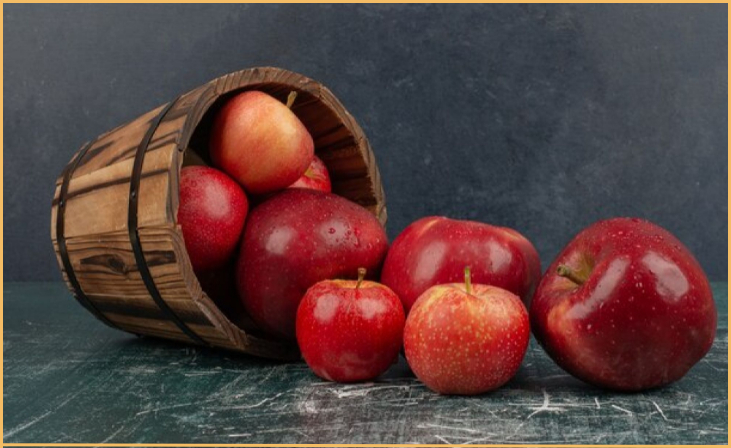
An apple a day not only keeps the doctor away but also provides a substantial dose of fiber. Compared to oatmeal, apples offer 15%–18% of your daily fiber intake along with 4 grams of this essential nutrient. Enjoy them as a simple snack, with almond butter, caramelized, or in a delectable Healthy Apple Crumble.
Apples are a classic choice for those looking to increase their fiber intake. They are also a great source of vitamins, particularly vitamin C, and can help boost your immune system.
Also Read: 12 Best Types of Fish to Eat for a Healthy Diet
6. Pears: Nature’s Fiber-Rich Delight
Pears offer a wonderful alternative to apples, packing even more fiber. Providing 18%–22% of your daily fiber intake, pears can be enjoyed poached or as a star ingredient in a Warm Goat Cheese Salad, offering a refreshing burst of flavor and texture.
Much like apples, pears are abundant in vitamins and antioxidants. They are particularly known for their high vitamin C and vitamin K content. Additionally, pears are a hydrating fruit, thanks to their high water content.
7. Potatoes: A Wholesome and Fiber-Filled Option
Don’t underestimate the power of potatoes. Medium-sized potatoes contain more potassium than bananas and offer 5 grams of dietary fiber. Rich in minerals and antioxidants, potatoes contribute to your body’s defense against free radicals while providing a satisfying dose of fiber.
Potatoes often get a bad rap due to their association with high-calorie dishes like french fries and potato chips. However, when prepared healthily (e.g., roasted or baked), potatoes can be a nutritious addition to your diet. They are also an excellent source of energy.
8. The Chickpea: Hummus and Fiber in One
Chickpeas, the star ingredient of hummus, pack a punch of fiber in every bite. Just 1/2 cup of cooked chickpeas provides 21%–26% of your daily fiber needs. Whether enjoyed as hummus, added to salads, or transformed into a protein-rich snack, chickpeas are a versatile and tasty source of fiber.
Chickpeas are not only a fantastic source of fiber but also protein, making them a popular choice among vegetarians and vegans. They are also rich in various vitamins and minerals, including folate, iron, and manganese.
9. 70%–85% Cacao Dark Chocolate: A Sweet Surprise
Indulge your sweet tooth while boosting your fiber intake with dark chocolate. Surprisingly, dark chocolate offers more fiber than oatmeal in just 2 ounces. Savor two squares of dark chocolate after dinner for a delightful treat that contributes to your daily fiber goals. Explore fun ideas like Dark Chocolate-Dipped Bananas to add a creative twist to your diet.
Dark chocolate, when consumed in moderation, can have several health benefits. It is known for its antioxidant properties and may help improve heart health by reducing blood pressure and promoting better blood flow.
10. Quinoa: The Ancient Grain with Modern Benefits
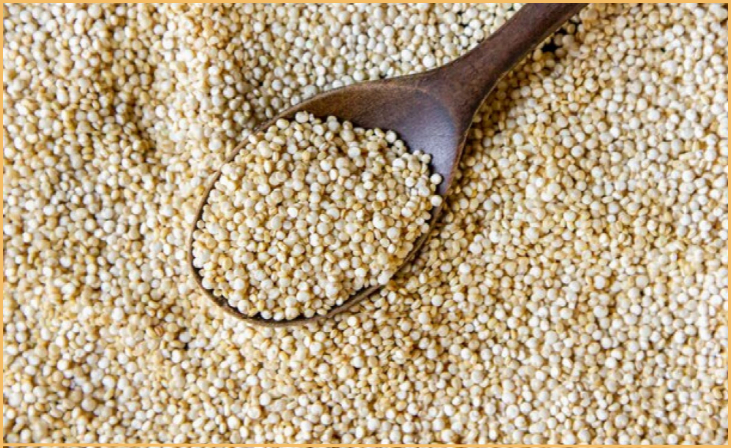
Quinoa, often referred to as a “superfood,” is an ancient grain that is a fantastic addition to a fiber-rich diet. A 1/2 cup of cooked quinoa contains approximately 2.8 grams of fiber. While it may not be the highest fiber content on this list, quinoa brings a unique set of benefits to the table.
This grain is packed with protein, making it an excellent choice for vegetarians and vegans. Quinoa is also gluten-free and rich in essential amino acids, vitamins, and minerals like magnesium and manganese. Its versatility in the kitchen allows you to use it in salads, as a side dish, or even in breakfast bowls, adding a wholesome dose of fiber to your meals.
Also Read: 15 Power-Packed Healthy Snacks To Melt Belly Fat
Embracing these 10 Fiber-Rich Foods for a Healthy Diet: Boosting Your Wellness and Vitality. Incorporating these 10 fiber-packed foods into your meals can have a profound impact on your well-being, from improved digestion to increased vitality. Experiment with different dishes and combinations to discover the exciting flavors and benefits that these foods bring to your table.
Incorporating these fiber-rich foods into your diet can transform not only your health but also your culinary experiences. From the creamy delight of avocados to the burst of flavor from berries, there are countless ways to enjoy these fiber-packed foods while reaping their numerous benefits. So, why wait? Start making these delicious and nutritious choices today and embark on a journey to a healthier, more vibrant you. Your body will thank you for it!\
FAQs
The recommended daily fiber intake varies depending on factors like age and gender, but a general guideline is 25 grams for adult women and 38 grams for adult men.
While fiber supplements can be useful, it’s best to get your daily fiber from whole foods as they provide essential nutrients and a broader range of health benefits.


